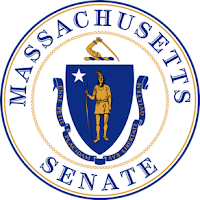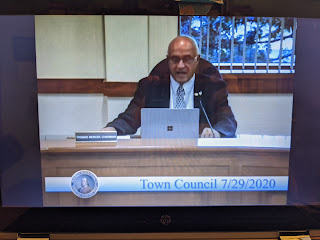Senate Advances Maternal Health Package
Legislation establishes commissions to study barriers to substance use treatment and address racial inequities in maternal mortality and morbidity; provides licensure for certified professional midwives;
The Massachusetts State Senate on Thursday, July 30, 2020, unanimously passed three bipartisan bills to increase birth options and safety for all pregnant and perinatal people in the Commonwealth of Massachusetts. One bill establishes a commission to study barriers to substance use treatment for women in the perinatal period, another establishes a commission to address racial inequities in maternal healthcare in Massachusetts, and a third increases options for safe, professional birthing care in the Commonwealth by licensing midwifery.
"At a time when inequities in our health care system are being highlighted by a global pandemic, I am proud to support these critical bills to support maternal health," stated Senate Karen E. Spilka (D-Ashland). "This package is about turning the tide on the tragic imbalance in treatment and outcomes that exists in maternal health, particularly in our Black and brown communities, and ensuring all pregnant people and new mothers have access to the care they need. The Senate has remained laser-focused this session on breaking down barriers, enhancing transparency and lowering the cost of health care and will continue to push for reforms to make our health care system better. I'd like to express my gratitude to Senators Joan Lovely and Becca Rausch for their efforts. This is an example of what we can and should accomplish by having women in positions to make change."
An Act relative to improving access to treatment for individuals with perinatal substance use disorder creates a special commission to study the barriers to substance use treatment for women in the perinatal period. This commission will bring together the Department of Mental Health (DMH), the Department of Public Health (DPH), the Department of Children and Families (DCF), MassHealth, the Bureau of Substance Abuse Services, and private partners with expertise in maternal mental health and substance use treatment to ensure pregnant and postpartum women with substance use disorder have meaningful access to the care they need.
This commission will evaluate how different factors like insurance coverage, access to family-based treatment, screening for perinatal substance use disorder, and the integration of perinatal care and substance use treatment affect the availability of care. The commission will also recommendations to provide greater access to treatment for this vulnerable population.
"New mothers are one of the most at-risk populations for opioid overdose in the Commonwealth. Over the last decade, the proportion of pregnancy-associated deaths related to substance use has increased sharply. More than a third of pregnancy-related deaths in Massachusetts are fatal opioid overdoses," said Senator Joan B. Lovely (D-Salem), the lead sponsor of the perinatal substance abuse bill and Chair of the Senate Committee on Rules, which ushered through two of the bills. "This special commission will identify and recommend ways to address the barriers to care for women during the perinatal period, when many already struggle with isolation, depression, and anxiety. This legislation represents a key step toward providing more, better treatment options to give new mothers confidence to seek and receive care while parenting their children."
An Act to reduce racial disparities in maternal health establishes a commission to address the continuing racial inequities in the Commonwealth's maternal health outcomes, specifically in cases of maternal mortality and morbidity. Among the developed nations of the world, only the U.S. continues to allow people giving birth to die in increasing numbers, and the outcomes are staggeringly worse for people of color, who experienced a 238% increase in the risk of maternal death between 1978 and 2015.
The commission will bring together diverse perspectives on maternal health and racial health disparities and will include public health experts, physicians, midwives, a doula, and individuals with first-hand experience with health disparities, including a survivor of maternal morbidity. The bill requires that a majority of commission members represent Massachusetts communities most impacted by maternal health inequity, which statistically have been Black and brown communities. The commission must submit a report of its findings and recommendations, including any draft legislation necessary to achieve the recommendations of the commission, within one year of its creation.
"People giving birth now are more likely to suffer injury, illness, or death than our mothers and grandmothers who delivered in the previous century, and Black and brown birthing people are more than twice as likely to be forced to endure those heartbreaking harms," said Senator Becca Rausch (D-Needham), the lead sponsor of the maternal health disparities and midwifery bills. "We cannot allow that to stand, nor can we tackle a problem without understanding the full extent of its impact. The maternal health disparities commission we establish today will serve as that meaningful first step in crafting policy solutions to the tangible racial disparities in maternal health outcomes in Massachusetts. I am grateful to Senate President Karen Spilka, Senate Rules Committee Chair Joan Lovely, my House co-filers Representatives Liz Miranda and Kay Khan, and the many advocates whose collaboration made this commission possible."
In response to this bill, Dr. Amutah-Onkagha, an Associate Professor at Tufts University School of Medicine and the organizer of the Annual Black Maternal Health Conference said, "Massachusetts is a national leader in healthcare for many reasons and the passage of the Senate bill to develop a maternal health commission that addresses disparities in maternal health outcomes for Black women is no different. As a Black woman, maternal health advocate and public health professor, I am encouraged by the work that the commission will accomplish to improve the health of women across the Commonwealth by reducing maternal mortality and morbidity. I am particularly excited that the voices, expertise and strength of Black women will lead and shape the timely and urgent work that the commission will achieve."
An Act relative to out-of-hospital birth access and safety creates licensure for certified professional midwives who provide home birth services, which are less expensive than hospital-based birth and associated with healthy birth outcomes, including lower rates of Caesarean section and fewer postpartum complications. This credentialing process will standardize midwifery training and qualifications, provide consumers with transparent information when seeking a home birth, and facilitate the hospital transfer process in the event of labor compilations. In addition to making home birth midwifery care more accessible for birthing people, the bill also reduces potential barriers to entry into the profession. Two members of the licensing board must come from populations historically underrepresented in the profession, and the legislation includes licensing fee waivers for aspiring low-income midwives.
The demand for home birth midwifery care has increased sharply during the coronavirus crisis. The licensure provided by this legislation secures healthcare worker status for professional midwives, yielding access to personal protective equipment and other supports necessary for Massachusetts midwives to safely deliver pre- and post-natal care.
Senator Rausch said, "The midwives bill increases health care access, improves health outcomes, and reduces health costs, all at once. I'm proud to have championed this critical reproductive justice legislation in the Senate and grateful that Massachusetts is now a significant step closer to joining the 36 other states in the nation that provide licensure for certified professional midwives. The import of this bill was undeniable before the pandemic hit, and COVID-19 laid bare its urgency, as increasing numbers of birthing people throughout the Commonwealth seek home birth midwifery care to avoid exposure to the virus and to keep from taxing the hospital-based healthcare system unnecessarily. Thank you to Senate President Karen Spilka, Senate Ways and Means Chair Michael Rodrigues, my House co-filer Representative Kay Khan, and the many advocates who collaborated with me to bring this bill to the Senate floor for its passage."
On this bill, Ann Whitman, a Certified Professional Midwife who practices in Massachusetts said, "I've been a Certified Professional Midwife in Massachusetts for almost thirty years, and we've always worked toward licensure, but practicing through this pandemic has exposed the need for safe and accessible out-of-hospital birth like never before. I've been receiving at least ten times the amount of inquiries from families hoping that a home birth is an option, but Massachusetts is so far behind the majority of other states, completely lacking a framework for equitable access to home birth, or minimum standards and protocols for practice. Massachusetts families need this bill passed."
An Act relative to improving access to treatment for individuals with perinatal substance use disorder, An Act relative to out-of-hospital birth access and safety and An Act to reduce racial disparities in maternal health now move to the Massachusetts House of Representatives for consideration.











